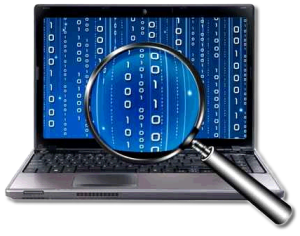What’s on His Hard Drive or in Her Browser History?
 The overwhelming majority of today’s communication occurs over digital channels, including email and social media sites. The amount of information that people share over these networks is considerable and can be used to help reconstruct events and behavior. Information that is recovered from email, social media channels, desktop computers and mobile devices can be invaluable when proving your case in court.
The overwhelming majority of today’s communication occurs over digital channels, including email and social media sites. The amount of information that people share over these networks is considerable and can be used to help reconstruct events and behavior. Information that is recovered from email, social media channels, desktop computers and mobile devices can be invaluable when proving your case in court.
Computer forensics — the investigation of a computing device — consists of collecting, analyzing and preserving data that may have been recovered from computer hard drives that have been damaged or erased. The analysis can also determine whether the devices were hacked to trace the source of the hacking and determine the effects of any malware or other manipulation.
The use of computer forensics extends beyond looking for evidence of fraud or hacking. When determining a child custody case, wouldn’t you want to know as many details as possible about the person taking care of your child? What types of websites do they frequently visit and what sort of company do they keep online? If you are being stalked or harassed, a computer forensics investigation can help uncover evidence that can bolster your case for an order of protection.
Other examples of the importance of cyber forensics can be found all over the news, from FBI investigations into terrorist activity, to local investigations right here in Alabama. By performing a cyber investigation, looking into email and browser histories, Alabama investigators were able to uncover and subsequently assist in the prosecution of a Blout County man for possession of child pornography.
In all legal matters the most vital information is usually stored on computer systems. Baldwin Legal Investigations guarantees the proper collection, examination and handling of computer forensic evidence to ensure that the acquired information can be used in court to prove your case.
BLI’s computer forensics investigators:
- Take custody of equipment including computers, flash drives, CD’s, DVD’s, backup tapes, smartphones, and digital cameras;
- Use imaging software to copy data from computer discs and employ file recovery programs to search for and restore deleted data;
- Compile reports and document procedures; and
- Testify in court on your behalf.
Questions about our private investigator services? Give us a call today.
